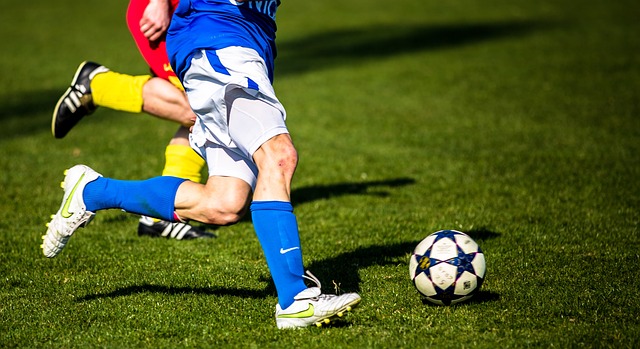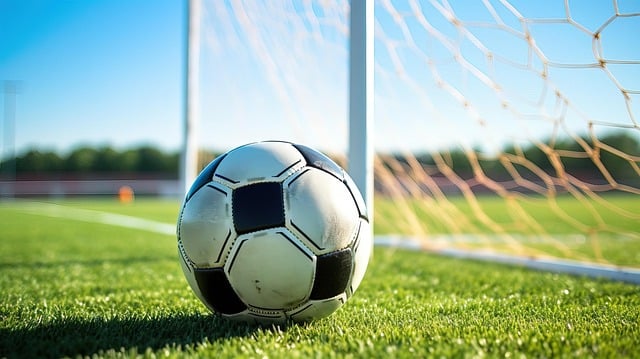Being a football goalkeeper is a job that comes with immense pressure and responsibility. You’re not just guarding the net—you’re the last line of defense between victory and defeat. But that’s what makes the role so exciting, right? Every save is a mini-celebration, and every mistake feels like an extra weight on your shoulders. Whether you’re just starting out or looking to level up your goalkeeping game, there’s no shortage of ways to improve.
So, let’s dive into some essential goalkeeper tips that will help you sharpen your skills and stand tall when the spotlight’s on you.
1. The Importance of Goalkeeper Drills
It all starts with the basics. Goalkeeper drills are a cornerstone of any training regimen. Just like an outfield player, goalkeepers need constant practice to refine their craft. And the beauty of goalkeeping is that you can always improve, regardless of your skill level.
Essential Drills for Goalkeepers
From shot-stopping techniques to reflex training, there’s no shortage of drills to focus on. For example:
- Reaction Time Drill: Have a partner throw balls from various angles, and try to save each one. It’s excellent for improving your reflexes and hand-eye coordination.
- Diving Drill: Start with small dives and work your way up. The more you practice, the more natural it becomes.
- Footwork Drill: Quick, sharp movements are key for any goalkeeper. Practice shifting weight and moving laterally to cover ground faster.
Personal Insight
I remember when I first started as a keeper, I focused way too much on saving the ball without thinking about positioning. My coach drilled into me—“If you’re in the right position, you’ll save more shots.” It was a game-changer. The mental switch helped me realize that goalkeeping drills aren’t just about catching balls—they’re about anticipating plays, reading the game, and reacting quickly.

2. Mastering Shot-Stopping Techniques
Shot-stopping is the bread and butter of any goalkeeper’s job. But it’s not just about diving to make spectacular saves—there’s a lot more to it.
Key Shot-Stopping Techniques
- Low Shots: Always stay low to the ground for quick reactions to shots on the floor. Bend your knees slightly and prepare your hands to go down in one fluid motion.
- High Shots: Use your hands and not just your arms. Jump up, stretch your arms wide, and always have your palms facing the ball to absorb the impact.
- Close-Range Shots: React quickly! At close range, you’ll have little time to adjust. Use the “block” method—position your body and limbs in a way that creates a large surface area to stop the ball.
Tip: You don’t need to go for every shot. Sometimes it’s better to make a controlled save rather than trying to make a spectacular one. Saving with precision will keep you more in control, reducing rebounds and second chances for the opposing team.
Reflection
In my own experience, shot-stopping was something I didn’t take seriously at first. I would just throw myself at everything. But once I learned to calm my mind, focus on technique, and trust my positioning, my performance improved drastically. When it comes to shot-stopping, it’s not just about being reactive—it’s about being calm under pressure.
3. Positioning: Be in the Right Place at the Right Time
The best keepers aren’t just fast or strong—they’re always in the right position. Positioning is arguably one of the most important skills for any goalkeeper.
Positioning Tips for Goalkeepers
- Stay Central: The goal is wide, and the ball can be hit anywhere. As a general rule, you should aim to position yourself centrally in the goal when facing a shot. This maximizes your chances of saving the ball.
- Anticipate the Play: Always keep your head on a swivel. By anticipating where the ball might go, you can position yourself before the shot is even taken.
- Angle of the Shot: If a striker is at a wide angle, position yourself closer to the near post to cover as much of the goal as possible. For central shots, stand slightly off-center to cover more space.
Personal Story:
I learned the importance of positioning the hard way. In my early days as a goalkeeper, I was a “flailer.” Every time the ball was shot at me, I would dive without thinking. After conceding a few goals that I should have saved, my coach sat me down and explained the concept of positioning. “You’re not a superhero,” he said. “You’re a tactician.” It clicked. Good positioning meant fewer heroic dives and more reliable saves.
4. Reflex Training: Speed of Thought and Action
When the game’s moving fast, you don’t have time to think. You’ve got to react quickly—no hesitation. Reflexes are key for any goalkeeper, especially when it comes to close-range shots or unexpected deflections.
Reflex Training Tips
- Tennis Ball Drill: Have a partner throw a tennis ball at you from different angles. It’s small and fast, which forces you to focus on quick reflexes and hand-eye coordination.
- Ball Rebound Drill: Use a rebounder or wall to bounce balls back at you at varying speeds and angles. This builds your reflexes and ability to react to unpredictable bounces.
- Speed Ladder Drills: Not just for footwork—these drills help sharpen your agility and reaction time by forcing you to move quickly with precision.
Reflexes and Mental Focus
The key to improving reflexes isn’t just physical—it’s mental. Being in the right mindset makes all the difference when a shot comes at you in a split second. When you’re mentally focused, your body reacts faster. If your mind is clouded with doubt, it’s harder to react in the moment.
5. Diving Techniques: Getting to the Ball with Precision
Diving is a goalkeeper’s bread and butter. A solid dive can make you look like a hero, but it’s not just about throwing yourself at the ball—technique matters.
Perfecting Your Diving Technique
- Step into the Dive: Always push off with your foot to generate power before diving. This helps you cover more ground and reach balls you otherwise wouldn’t be able to.
- Body Alignment: Make sure your body is aligned when you dive. If you’re diving for a low shot, aim to land with your chest and arms leading to absorb the impact, keeping control of the ball.
- Don’t Overcommit: Sometimes less is more. Overcommitting with a dive can leave you stranded if the ball is passed in a different direction. Always make sure you’re in control before going all in.
Personal Insight:
I once witnessed a fellow keeper dive at a shot that was going wide, just for the sake of diving. The ball missed, and he ended up out of position, leaving the net open for a simple goal. It taught me an important lesson—dive when necessary, but always be in control.
6. Handling Crosses: Don’t Let Them Slip
Crosses can be the bane of any goalkeeper’s existence. They’re tricky, fast, and usually come with a group of attackers hoping to capitalize on the opportunity.
Tips for Handling Crosses
- Stay Organised: Never go for a cross unless you’re 100% sure you can catch it. If in doubt, punch it clear.
- Timing Is Everything: Don’t rush out and challenge crosses unnecessarily. Wait for the right moment, then go for it with everything you’ve got.
- Communicate with Your Defense: Communication is critical. Yell “mine!” when you’re going for a cross, so your defenders know to step back.
Reflection:
Handling crosses was always a weak point in my game. I found that once I started focusing on timing and communication, things improved dramatically. That’s when I truly became a reliable keeper.
7. Mental Focus for Goalkeepers: Stay Sharp
As a goalkeeper, mental focus is just as important as physical ability. One lapse in concentration could mean a goal, so it’s important to stay sharp at all times.
Mental Tips for Keepers
- Visualisation: Imagine yourself making great saves before the game. Visualisation techniques can boost your confidence and help you stay focused during critical moments.
- Stay Calm: Football is an emotional game, but goalkeepers must stay calm, no matter what. Whether you make an incredible save or concede a goal, always keep your cool.
- Focus on the Present: Don’t dwell on past mistakes. Every game is a new opportunity, and every moment in the match is a fresh chance to shine.
Conclusion: Becoming a Better Goalkeeper
Improving your goalkeeping skills is no overnight task—it takes time, dedication, and a commitment to constant growth. Whether it’s reflex training, perfecting your diving techniques, or honing your shot-stopping skills, each of these tips can help you develop into a more confident and reliable goalkeeper. And remember, even the best goalkeepers make mistakes. It’s how you bounce back that matters most.
Good luck out there—and may your net stay clean!



